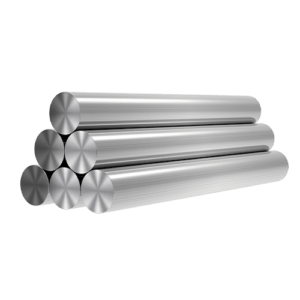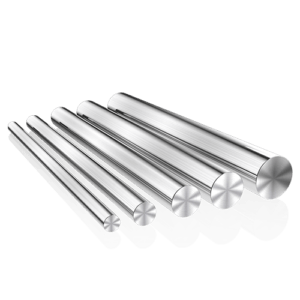Introduction

Steel 303 is a grade of stainless steel that is widely used in various industrial applications due to its specific properties. Understanding the steel 303 properties is crucial for determining its suitability for different uses. This blog explores the key steel 303 properties, including its chemical composition, mechanical attributes, and corrosion resistance. We will examine how these properties impact its performance in various applications, providing a comprehensive overview of why steel 303 is a popular choice in manufacturing and engineering.
Chemical Composition of Steel 303
Composition Overview
Steel 303 is known for its enhanced machinability and moderate corrosion resistance, thanks to its unique chemical composition. The primary steel 303 properties related to its composition are:
- Chromium (Cr): 17.00-19.00%
- Nickel (Ni): 8.00-10.00%
- Manganese (Mn): 2.00% max
- Sulfur (S): 0.15-0.35%
- Phosphorus (P): 0.20% max
These elements contribute to the steel 303 properties that make it suitable for applications requiring precise machining and moderate corrosion resistance.
Impact of Composition on Properties
The addition of sulfur in steel 303 enhances its machinability by improving the cutting performance and reducing tool wear. However, this also slightly lowers its corrosion resistance compared to other stainless steels like 304. The high levels of chromium and nickel improve overall strength and oxidation resistance, which are critical steel 303 properties for many industrial applications.
Mechanical Properties of Steel 303
Key Mechanical Properties
Steel 303’s mechanical properties significantly affect its performance in various applications. Key steel 303 properties include:
- Tensile Strength: 75,000 psi (515 MPa)
- Yield Strength: 30,000 psi (207 MPa)
- Elongation: 40% (in 2 inches)
- Hardness: Rockwell B scale 80
These mechanical properties of steel 303 are crucial for determining its ability to withstand stress and deformation under different conditions.
Performance Analysis
The tensile strength of steel 303 indicates its ability to handle substantial loads before failing. Its yield strength ensures structural integrity under stress, while its elongation property reflects its capability to deform without breaking. These steel 303 properties make it suitable for applications that require durability and flexibility.
Corrosion Resistance and Durability
Corrosion Resistance
Steel 303 provides moderate corrosion resistance due to its chromium and nickel content. It performs well in environments that are not highly corrosive but may struggle in more aggressive environments compared to higher chromium steels like 316. Understanding the steel 303 properties related to corrosion resistance is vital for selecting the appropriate material for specific environments.
Durability in Various Environments
In mild environments, such as atmospheric conditions and some industrial processes, steel 303 demonstrates sufficient durability. However, in highly corrosive environments, alternative stainless steels with better resistance, such as steel 316, are recommended. This aspect of steel 303 properties is important when considering material longevity and performance.
Applications of Steel 303
Machining and Manufacturing
Steel 303 is highly valued for its machinability, making it a preferred choice for precision machining applications. Its properties allow for efficient cutting, drilling, and milling. Typical applications include:
- Precision shafts
- Fasteners
- Hydraulic fittings
These applications leverage the steel 303 properties that enhance production efficiency and component performance.
Automotive and Aerospace
In the automotive and aerospace industries, steel 303 is used for components that require both machinability and strength. Its performance in these applications benefits from its mechanical properties and moderate corrosion resistance. Common uses include:
- Engine components
- Aircraft fittings
- Control mechanisms
The steel 303 properties relevant to these industries ensure reliable performance under operational stresses.
Consumer Goods
Steel 303 is also used in consumer goods where aesthetic and functional properties are essential. Its durability and machinability make it suitable for:
- Household appliances
- Kitchen utensils
- Decorative items
In these applications, the steel 303 properties contribute to both the usability and visual appeal of the products.
Table: Comparison of Steel 303 with Other Stainless Steels

| Property | Steel 303 | Steel 304 | Steel 316 |
|---|---|---|---|
| Chromium (Cr) | 17.00-19.00% | 18.0-20.00% | 16.00-18.00% |
| Nickel (Ni) | 8.00-10.00% | 8.00-10.50% | 10.00-14.00% |
| Manganese (Mn) | 2.00% max | 2.00% max | 2.00% max |
| Sulfur (S) | 0.15-0.35% | 0.00-0.03% | 0.00-0.03% |
| Phosphorus (P) | 0.20% max | 0.045% max | 0.045% max |
| Tensile Strength | 75,000 psi (515 MPa) | 70,000 psi (483 MPa) | 80,000 psi (552 MPa) |
| Yield Strength | 30,000 psi (207 MPa) | 30,000 psi (207 MPa) | 30,000 psi (207 MPa) |
| Elongation | 40% (in 2 inches) | 40% (in 2 inches) | 40% (in 2 inches) |
| Hardness | Rockwell B 80 | Rockwell B 70 | Rockwell B 80 |
Conclusion
Steel 303 properties, including its chemical composition, mechanical attributes, and corrosion resistance, make it a versatile material suitable for various applications. Its excellent machinability and moderate corrosion resistance are key factors in its popularity for precision machining and industrial uses. However, understanding the limitations of steel 303 properties, especially regarding corrosion resistance, is crucial for selecting the right material for specific environments.
By leveraging the strengths of steel 303 and acknowledging its limitations, manufacturers and engineers can make informed decisions, ensuring optimal performance and durability in their applications.
FAQ
Q:What are the main properties of steel 303?
A:Steel 303 is known for its excellent machinability, moderate corrosion resistance, and good mechanical strength. Key properties include a tensile strength of 75,000 psi, yield strength of 30,000 psi, and a Rockwell B hardness of 80.
Q:How does steel 303 compare to other stainless steels?
A:Steel 303 offers superior machinability compared to other stainless steels like 304 and 316 due to its sulfur content. However, it has slightly lower corrosion resistance than 316 and similar corrosion resistance to 304.
Q:What are common applications for steel 303?
A:Steel 303 is commonly used in precision machining, automotive and aerospace components, and consumer goods. Its properties make it suitable for parts that require high machinability and moderate corrosion resistance.
Q:Why is machinability important in steel 303?
A:Machinability is crucial for processes involving cutting, drilling, or milling. Steel 303’s high machinability reduces tool wear and increases production efficiency, making it ideal for manufacturing complex components.
Q:Can steel 303 be used in highly corrosive environments?
A:Steel 303 provides moderate corrosion resistance but may not be suitable for highly corrosive environments. For such applications, stainless steels with better corrosion resistance, such as steel 316, are recommended.
